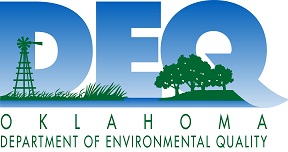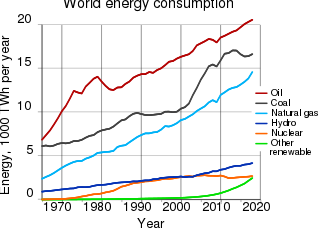
The Environmental Protection Agency (EPA) is an independent agency of the United States government tasked with environmental protection matters. President Richard Nixon proposed the establishment of EPA on July 9, 1970; it began operation on December 2, 1970, after Nixon signed an executive order. The order establishing the EPA was ratified by committee hearings in the House and Senate.
The Department of Natural Resources and Environmental Control (DNREC), part of the executive branch of state government in Delaware, is concerned with the governance of public land, natural resources and environmental regulations for the state. DNREC is composed of various subagencies: the Office of the Secretary; the Division of Community Affairs; the Division of Air Quality; the Division of Waste and Hazardous Substances; the Division of Water; the Division of Climate, Coastal and Energy; the Division of Fish and Wildlife; the Division of Parks and Recreation; and the Division of Watershed Stewardship. Its offices are primarily based in Dover, the state capital.

The Oklahoma Corporation Commission is the public utilities commission of the U.S state of Oklahoma run by three statewide elected commissioners. Authorized to employ more than 500 employees, it regulates oil and gas drilling, utilities and telephone companies.

The Ministry of Ecology and Environment is an executive-department of the State Council of the People's Republic of China, responsible for the ecological and environmental affairs. It is the 15th-ranked department in the State Council.
The Michigan Department of Environment, Great Lakes, and Energy (EGLE), formerly Michigan Department of Environmental Quality, is a principal department of the U.S. state of Michigan for environmental issues. The department was created in 1995.
The Pennsylvania Department of Environmental Protection (DEP) is the agency in the U.S. state of Pennsylvania responsible for protecting and preserving the land, air, water, and public health through enforcement of the state's environmental laws. It was created by Act 18 of 1995, which split the Department of Environmental Resources into the Department of Environmental Protection and the Department of Conservation and Natural Resources. Its current secretary is Jess Shirley.

The Oklahoma Department of Environmental Quality (DEQ) is a department of the government of Oklahoma under the Governor of Oklahoma. It is responsible for protecting human health and for safeguarding the natural environment: air, water, and land. DEQ is chiefly responsible for the environmental policy of Oklahoma. It is governed by a thirteen member Environmental Quality Board appointed by the Governor, which in turn appoints an Executive Director to administer the Department.

The Ministry of Environment, formerly the Environmental Protection Administration, is a cabinet-level ministry responsible for protecting and conserving the environment in Taiwan. This also includes, air quality, noise control, monitoring and inspection of environment, solid waste, recycling, sustainable development and international cooperation.

The environmental impact of the energy industry is significant, as energy and natural resource consumption are closely related. Producing, transporting, or consuming energy all have an environmental impact. Energy has been harnessed by human beings for millennia. Initially it was with the use of fire for light, heat, cooking and for safety, and its use can be traced back at least 1.9 million years. In recent years there has been a trend towards the increased commercialization of various renewable energy sources. Scientific consensus on some of the main human activities that contribute to global warming are considered to be increasing concentrations of greenhouse gases, causing a warming effect, global changes to land surface, such as deforestation, for a warming effect, increasing concentrations of aerosols, mainly for a cooling effect.
The Louisiana Department of Environmental Quality (LDEQ) is a state agency of Louisiana that monitors the environment of the state. It is headquartered in the Galvez Building in downtown Baton Rouge.
The Ventura County Air Pollution Control District (VCAPCD) protects public health and agriculture from the adverse effects of air pollution by identifying problems and developing a comprehensive program to achieve and maintain state and federal air quality standards. The Ventura County Board of Supervisors formed the district in response to the county's first air pollution study, which found the area had a severe air quality problem.
The Wyoming Department of Environmental Quality (DEQ) founded in 1973, is a Wyoming state agency to protect, conserve and enhance the environment of Wyoming "through a combination of monitoring, permitting, inspection, enforcement and restoration/remediation activities". It consists of 6 divisions and since 1992, the Environmental Quality Council (EQC), a separate operating agency of 7 governor-appointed members.
Water in Arkansas is an important issue encompassing the conservation, protection, management, distribution and use of the water resource in the state. Arkansas contains a mixture of groundwater and surface water, with a variety of state and federal agencies responsible for the regulation of the water resource. In accordance with agency rules, state, and federal law, the state's water treatment facilities utilize engineering, chemistry, science and technology to treat raw water from the environment to potable water standards and distribute it through water mains to homes, farms, business and industrial customers. Following use, wastewater is collected in collection and conveyance systems, decentralized sewer systems or septic tanks and treated in accordance with regulations at publicly owned treatment works (POTWs) before being discharged to the environment.

The Arkansas Department of Health is a department of the government of Arkansas under the Governor of Arkansas. It is responsible for protecting health and well-being for all Arkansans. ADH is a unified health department, with a central office coordinating among 94 local health units.







